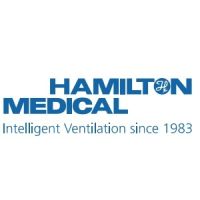The neonatal intensive care unit at Turku University Hospital (TYKS) has deployed the Unite Cardiomax solution, provided by Ascom Miratel, with the goal of promoting a safer patient environment for newborns who require a hospital stay. The Unite Cardiomax solution integrates with the hospital’s patient monitoring system to send alarm messages to a caregivers’ mobile DECT phone, alerting them about serious patient events.
‘The TYKS neonatal intensive care unit is undergoing a significant change to the care environment, moving toward more family-oriented care of newborn babies. During their hospital stay, newborns are placed in ‘family rooms’, where parents and siblings can remain with them day and night. With these changes, nurses may not always be able to hear the audible monitoring alarms in the same way as before. The Unite Cardiomax solution provides a secondary notification of monitoring alarms to a nurse’s wireless DECT phone to complement the primary patient monitoring system. The acquisition of the Unite Cardiomax system facilitates the implementation of our new family-oriented care approach’, explains head nurse Mirja Oksanen-Sainio.
The neonatal intensive care unit has 18 patient beds, all of them monitored centrally. Ten of these beds are in family rooms, two in rooms that can be transformed into operating rooms, and the rest in open care areas. The Unite Cardiomax application, customized specifically for this neonatal ICU, enables intelligent alarm filtering to help reduce alarm fatigue. Alarms related to pulse and oxygen saturation have been defined as high priority. It also helps minimize excessive noise in the ward, since avoiding unnecessary disturbances is extremely important for the well-being of both the babies and their parents.
The system delivery includes the Unite Assign application, which allows each nurse to indicate from his or her workstation which patients’ alarms should be directed to him or her. When an alarm is triggered, the nurse sees the related information on his or her mobile handset. If he or she is unable to respond to the notification, it is automatically forwarded to the next nurse. When additional help is needed, the nurse can use a shortcut to alert other nurses by forwarding the original notification. Similarly, for instance, the physician on duty can be called at the click of a button.
‘We used to have a nurse constantly present in multi-patient rooms. In a family room, this is not always the case. That is why it is useful to increase technical monitoring with the new mode of operation. Transmitting notifications about alarms to wireless phones may contribute to patient safety by allowing nurses to be informed of alarms also when they are at a distance from the central monitor displays. The nurses feel that the new application increases safety in their work. Thanks to technology, increased privacy does not need to mean increased insecurity,’ comments Oksanen-Sainio.
The developer of the Cardiomax server solution, Ascom Wireless Solutions, is a global provider of mission-critical communication systems. The Finland-based Ascom Miratel has a significant role in the company’s development of internal communication systems for hospitals.
‘We solve problems,’ summarizes Ari-Pekka Tenko, Sales Director at Ascom Miratel, who explains: ‘TYKS did not approach us about a certain technology. Instead they asked us how safety can be ensured in their new mode of operation. Cardiomax is a scalable system. When the operations develop further and more practice is gained, the system can be adjusted to meet new requirements related to where various alerts are directed.’
Source credit: Ascom

























